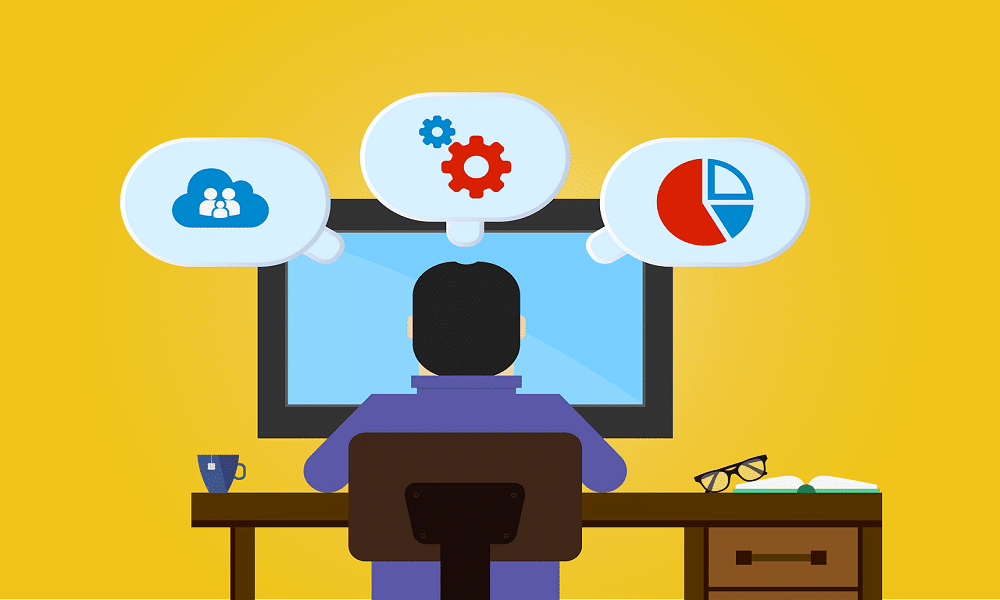If you’ve ever used an online tool to manage workflows, track expenses, or even stream content, you’ve likely encountered SaaS — or Software as a Service.
SaaS is a software delivery model that eliminates the need for installation or maintenance on individual devices. Instead of purchasing software outright, users subscribe to it and gain access anytime, anywhere, as long as they’re connected to the internet.
Businesses worldwide are rapidly embracing SaaS. According to Gartner, global spending on SaaS was projected to approach $675.4 billion in 2024, with organizations of all sizes adopting these solutions for their affordability, flexibility, and efficiency.
Let’s delve into the top five benefits of adopting SaaS for your business and explore why it has become a preferred choice across industries.
Why Adopt SaaS?
SaaS revolutionizes how businesses and individuals interact with software by eliminating many of the challenges associated with traditional applications. Remember the days of purchasing software in boxed sets, installing it manually, and later needing to buy costly upgrades? SaaS has rendered those processes obsolete.
SaaS is not only revolutionizing software delivery but also transforming how businesses operate. Here are some compelling statistics that highlight its impact:
- 73% of organizations expect nearly all their applications to be SaaS-based by 2025.
- Small and medium-sized businesses (SMBs) are among the fastest adopters, leveraging SaaS to access enterprise-grade tools without the associated costs.
- Leading SaaS platforms like Salesforce, Zoom, and QuickBooks have become essential for managing customer relationships, communication, and finances across industries.
And here’s why.
Cost Savings
One of SaaS’s most appealing aspects is its affordability. Instead of making a large upfront investment to purchase software, users pay a recurring subscription fee, which often includes maintenance, updates, and customer support.
This subscription-based model not only reduces financial risk but also provides predictable costs, enabling businesses to better manage their budgets. Additionally, businesses save on IT infrastructure and staffing expenses, as the SaaS provider handles hosting and system management.
Accessibility Anywhere, Anytime
SaaS offers unparalleled mobility and accessibility. Whether working from a home office, a coffee shop, or on the road, users can access SaaS platforms from any internet-enabled device.
This flexibility is a major advantage in today’s increasingly remote and hybrid work environments. Employees and teams can collaborate, access critical data, and perform tasks 24/7, no matter where they are.
Scalability and Flexibility
SaaS solutions grow with your needs. From startups to enterprises, businesses can choose subscription plans tailored to their size and requirements and upgrade or downgrade as needed.
For instance, during peak operational periods, a company can easily add users or features. Conversely, during slower times, it can scale back to save costs. This level of adaptability makes SaaS a highly practical option for businesses navigating fluctuating demands.
Automatic Updates and Maintenance
One of the most significant benefits of SaaS is the absence of manual updates and costly software upgrades. SaaS providers regularly roll out updates, granting users with instant access to the latest functionality and security enhancements without any additional effort.
This not only saves time but also reduces downtime, ensuring businesses remain productive and competitive.
Security and Reliability
With cybersecurity being a top concern for businesses, SaaS providers invest heavily in advanced security measures. Components like data encryption, multi-factor authentication, and regular compliance audits ensure the safety of sensitive information.
Additionally, SaaS platforms are designed for reliability. Built-in redundancies and backup systems minimize the risk of data loss and downtime, allowing users to focus on their core activities with confidence.
SaaS Solutions: Versatility and Challenges
SaaS platforms cater to diverse business needs, offering tools for nearly every aspect of operations. Popular categories include:
- Customer Relationship Management (CRM) tools such as Salesforce and Zoho, which streamline customer interactions;
- Enterprise Resource Planning (ERP) systems like Oracle products or Microsoft Dynamics, managing logistics, procurement, and accounting;
- Project Management Software like Jira and Asana for organizing tasks;
- Content Management Systems (CMS) like WordPress for publishing content;
- E-commerce platforms like Magento optimize online sales and marketing.
However, implementing SaaS solutions comes with challenges. Smooth integration with your current tech inventory is critical to ensure cohesive workflows, while data migration demands careful planning to avoid disruptions.
Security is another priority — SaaS providers must employ robust safeguards like encryption and multi-factor authentication. Lastly, reliance on a stable internet connection means businesses need contingency plans for downtime.
Despite these hurdles, SaaS solutions’ flexibility, scalability, and cost-effectiveness far outweigh the challenges, making them indispensable tools for modern businesses. With careful planning and the right provider, companies can maximize SaaS benefits while minimizing potential obstacles.


